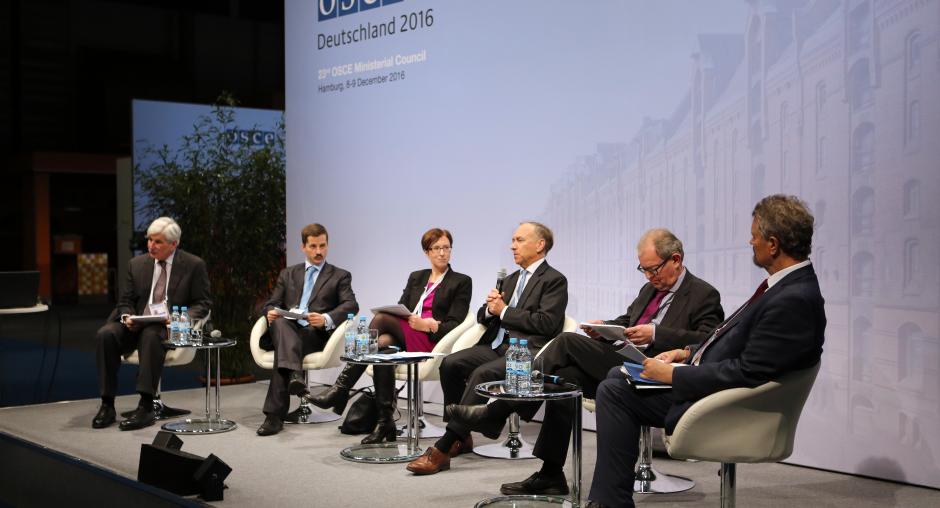Realistic interim measures needed to stem the deterioration of co-operative security in Europe, report by OSCE-related network of think tanks argues

“In the wake of the current confrontation between Russia and the West, will the nations of Europe govern their interactions by rules and principles, as the signatories of the Helsinki Final Act hoped, or by the conjuncture or clash of national interests?”
This was the leading question of a study conducted by the OSCE Network of Think Tanks and Academic Institutions presented at a side event of the OSCE Ministerial Council in Hamburg on 8 December 2016.
The increasing number of external and internal security challenges in Europe, including terrorism, climate change, the crisis in and around Ukraine and the growth of populist and xenophobic forces in response to increased migration flows, have led to a dangerous deterioration of the institutional foundations of co-operative security in Europe, the report states. It recommends a realistic approach, the development of interim rules of the road in the security, economic and social fields based on current realities and currently shared interests.
The report, entitled European Security – Challenges at the Societal Level, is based on fifteen national narratives produced by institutions affiliated with the OSCE Network. It builds on two reports by the Panel of Eminent Persons on European Security as a Common Project (PEP) published in 2015, as well as a further report on outreach events by several PEP members in 2016.
A second report by the OSCE Network, on protracted conflicts in the OSCE area, was also presented at the margins of the Ministerial Council. The reports by the PEP are available here.
